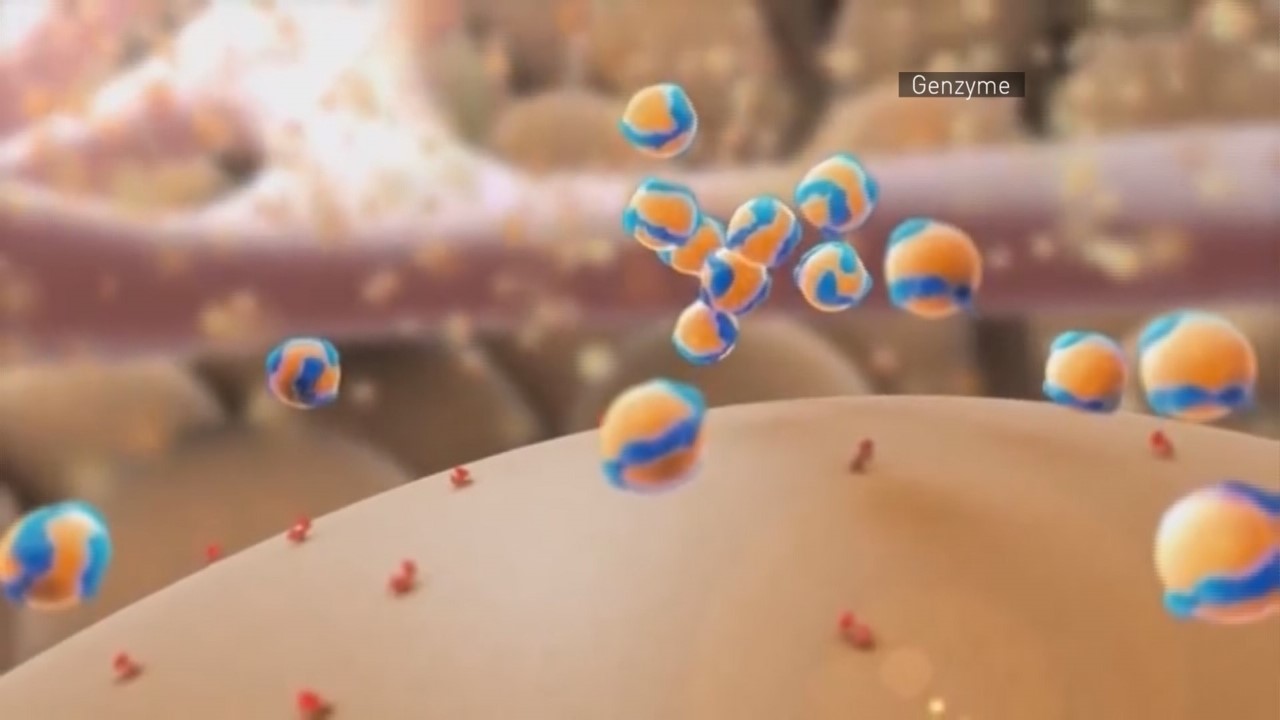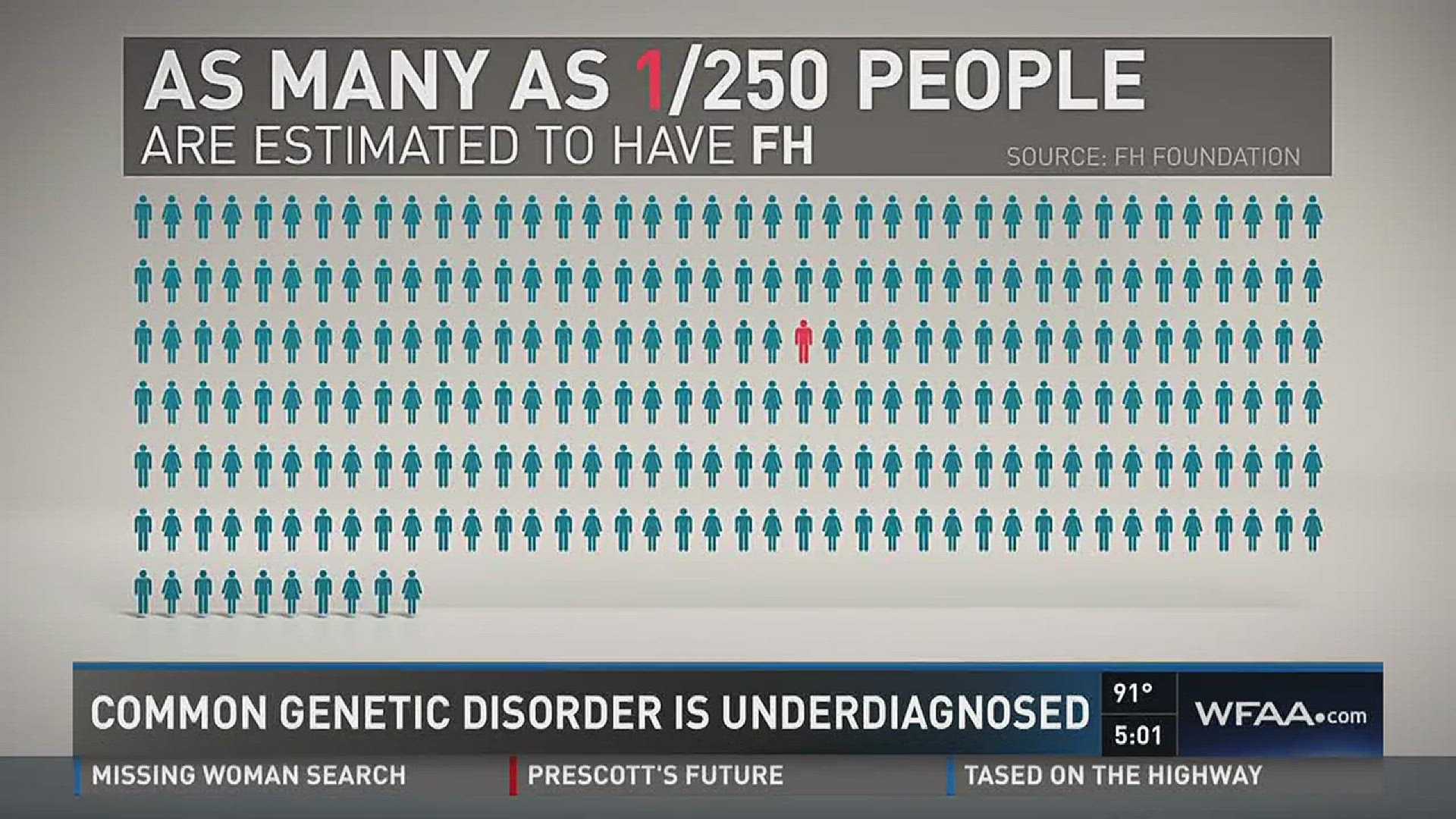Twelve-year-old Blair Sayers is a dedicated soccer player.
“I’m really competitive,” she said with a smile. She takes after her father, Scott.
“I was a soccer player, been a soccer player my whole life,” said Scott, now a law enforcement officer.
Between their active lifestyle, strong will and humor, there isn’t much the two don’t share.

“She’s a lot like me,” said Scott. “I like to think she got a bunch of other good things from me, but I gave her the one bad,” he said.
Scott has high cholesterol — really high cholesterol, caused by a genetic mutation passed down from his father, who had a bypass at 39.
By 51, Scott’s father died from a massive heart attack.
“Unfortunately, healthcare providers don’t always recognize that this may be familial and so people with high cholesterol aren’t always told to get your family members checked,” said Dr. Zahid Ahmad, Endocrinologist at UT Southwestern.
Scott found history repeating itself.
“I had a double bypass at 39, which was kind of a wake-me-up,” said Scott, who found himself with eight blockages. Doctors used stents on five of them.
But, surgery was no quick fix.
“Five years later, I had my first heart attack and I had another blockage,” recalled Scott.
This time, Blair was old enough to remember.
“[It was] really scary because I know he came home then went to the hospital,” she said.
Doctors still hadn’t pinpointed the reason for Scott’s heart problems. He decided to have Blair tested.
“Her cholesterol was 260 as an 8-year-old, and her LDL was 202,” said Scott.
That is extremely high. Doctors say it’s a red flag if children have LDL (“bad cholesterol”) levels above 130. For adults, anything above 190 is dangerous.

“I just didn’t want my daughter to walk down that road that I’ve walked down,” said Scott.
Diagnosed by his daughter’s cardiologist, Scott used genetic testing to confirm he has Familial Hypercholesterolemia, or FH. So does Blair.
“They have a very high risk of heart attack,” explained Dr. Ahmad.
This week, The FH Foundation hosted a global summit in Dallas to highlight UT southwestern research that has led to the new PCSK9 inhibitors – recently approved by the FDA for those with FH.

“If people are diagnosed early and get the treatment they need, they can live decades longer,” said Katherine Wilemon, founder and CEO of the FH Foundation.
Blair takes one pill every day to manage her cholesterol. Scott takes statins and needs an injection every 10 days.
“We got the best of my dad and the worst of my dad,” said Scott jokingly.
By taking a proactive approach, Scott is trying to change his family’s story. His father’s death may just have extended his – and Blair’s – lives.
“I don’t even know him but he’s still a part of my life,” said Blair.

